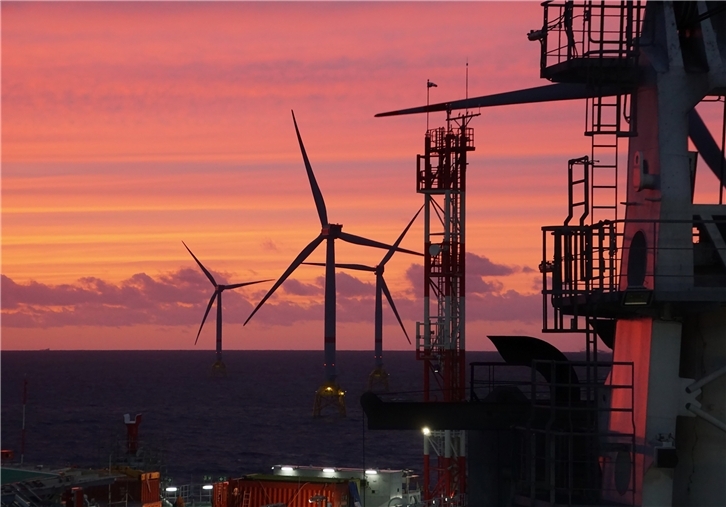Iberdrola has started work on the Baltic Eagle offshore wind farm in Germany
Iberdrola has begun the geotechnical phase for the Baltic Eagle offshore wind farm, which will have a capacity of 476 megawatts (MW), representing the start of a strategic project for the company.
Baltic Eagle is the second major offshore initiative that Iberdrola is undertaking in Germany, following the successful launch, at the end of 2017, of the 350 MW Wikinger wind farm. In addition, another 10 MW offshore facility in Germany, called Wikinger Süd, is under development.

These three wind farms, located next to the island of Rügen, will give rise to the largest offshore wind complex in the Baltic Sea, with a total installed capacity of 836 MW and a joint investment of 2.5 billion euros. Germany has thus become a key area for Iberdrola in the coming years.
The director of the Renewables Business, Xabier Viteri, stressed that Baltic Eagle “confirms the company’s firm commitment to technological innovation, the development of large renewable projects, the reduction of emissions to combat climate change and the increased economic and social contribution in the territories where it is present”.
Christian Pegel, Minister for Energy, Infrastructure and Digitisation with the state of Mecklenburg-West Pomerania, welcomed the announcement, as the project represents an important contribution to the economic development of the region and to environmental protection. “The use of offshore wind energy is essential for Mecklenburg not only because of its contribution to the ecological transition in Germany but also because of the opportunities it offers for employment and industry in our coastal areas,” he said.
FUGRO WILL UNDERTAKE THE GEOTECHNICAL INVESTIGATION OF THE SEABED
Fugro, a global specialist in offshore prospecting, will carry out an exhaustive geotechnical and geophysical investigation of the Baltic Eagle seabed in order to obtain the most complete information possible on the conditions in the area in which it will be located.
The studies contracted by Iberdrola, valued at more than 10 million euros, will be key to meeting the construction and commissioning deadlines for this renewable facility.
The investigation that has just begun includes, first of all, a study of the location and removal of possible unexploded ordnance. The programme for drilling boreholes and geotechnical investigations of the seabed will then begin, using state-of-the-art equipment and techniques.
In addition, a number of laboratory tests will be carried out in accordance with the requirements established by the German planning authority, Bundesamt für Seeschiffahrt und Hydrographie (BSH).
The data obtained by Fugro will determine the design of the foundations on which both the wind turbines and the substation will be built, which will be installed in waters up to 45 metres deep.
The offshore work is expected to be completed by March 2019 and the last technical report to be submitted by the end of June 2019.
BALTIC EAGLE AND WIKINGER, 45% OF CONSUMPTION IN MECKLENBURG-WEST POMERANIA
The start of these works means the launch of the Baltic Eagle project, which we were awarded last April by the Federal Network Agency (Bundesnetzagentur), within the framework of the second offshore wind auction organised in Germany.
Baltic Eagle and Wikinger will be able to produce enough energy to meet 45% of the total electricity consumption of the state of Mecklenburg-West Pomerania and it will prevent the emission of 1.65 million tons of CO2 per year, thus contributing to meeting the emission reduction targets set by Germany.
Iberdrola is cooperating with local authorities and has already provided the State Agency for the Environment, Nature Conservation and Geology of Mecklenburg-West Pomerania with samples and information from geotechnical studies carried out to analyse the status and ground conditions in that area of the Baltic Sea.
